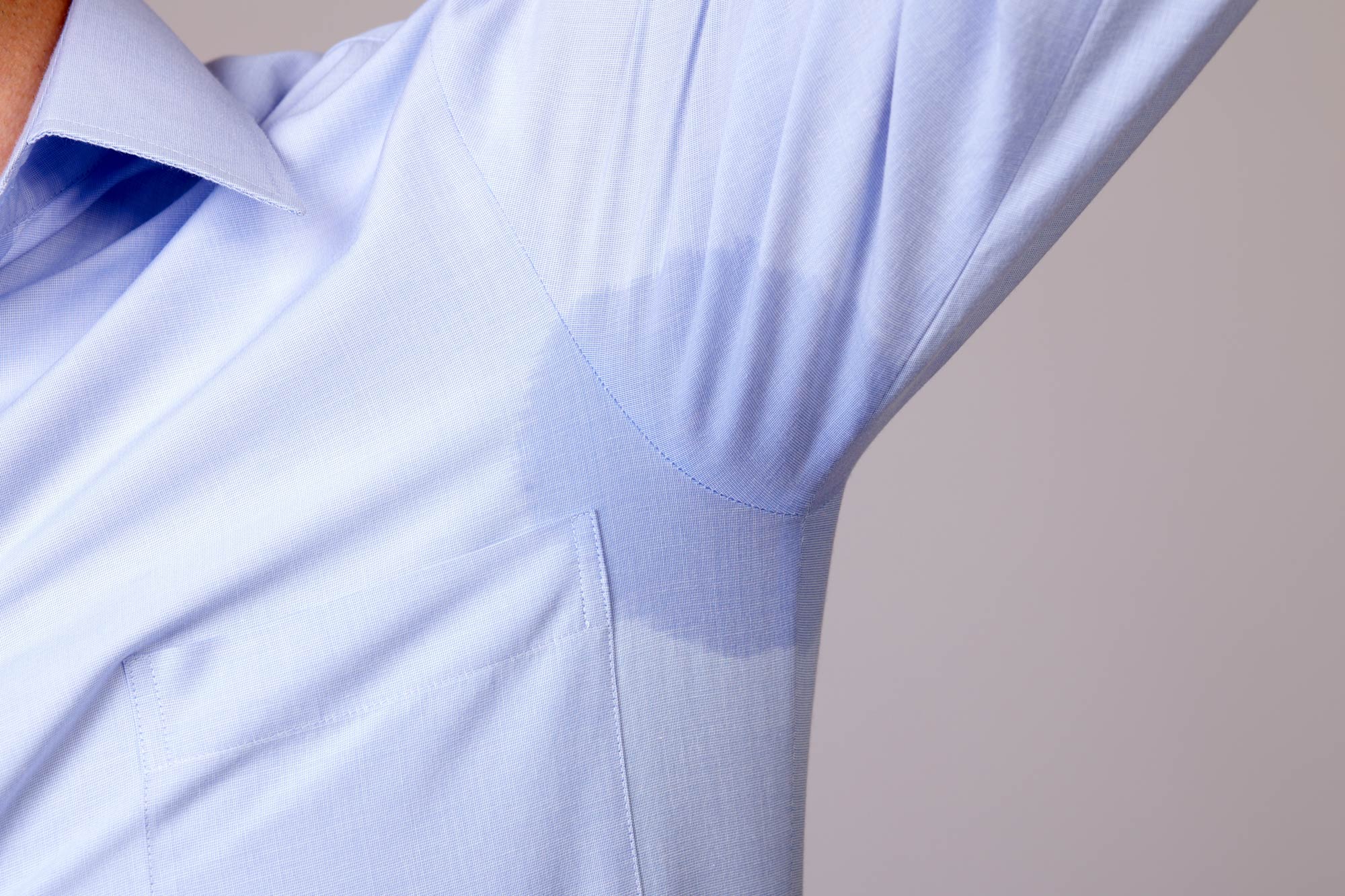Service Essentials
Excessive sweating is a genuine concern for patients who suffer from it, particularly under the arms and around the head. It comes with a host of social and lifestyle stigmas and anxieties. Hyperhidrosis is the medical term for excessive sweating. Luckily, we can readily address many types of hyperhidrosis with very simple anti-wrinkle injections.
Area
The underarm is most common but we can also treat hands, feet, nose, neck, & hairline
Assesment
Our doctor will examine your area of concern and may perform a test to create a sweat profile of the area
Treatment
Anti-wrinkle injections
Time
Assessment up to 20 mins, Treatment 20-25 mins
Comfort
Rarely reports uncomfortable
Lasts
Anywhere from 5-9 months is typical.
Results
Full appearance at 2-4 weeks
Cost
From €550 for repeat patients
Frequently Asked Questions
+ - What is hyperhidrosis?
Hyperhidrosis is a medical condition characterized by excessive sweating beyond what is necessary for normal body temperature regulation. It can affect various parts of the body, including the palms, soles of the feet, underarms, and face. This condition can significantly impact a person's daily life, causing discomfort, embarrassment, and interference with social and professional activities.
+ - What causes hyperhidrosis?
The exact cause of hyperhidrosis is not fully understood, but it is believed to involve overactive sweat glands and an overstimulation of the nervous system. Hyperhidrosis can be attributed to underlying medical conditions, such as hormonal imbalances, certain medications, infections, or other underlying health issues. It could also be hereditary.
+ - How to treat hyperhidrosis?
There are several treatment options available for hyperhidrosis, ranging from conservative measures to medical interventions. These include:
- Antiperspirants: Strong antiperspirants containing aluminum chloride can be applied to the affected areas to reduce sweating.
- Medications: Certain oral medications, such as anticholinergics, can help reduce sweating. However, they may have side effects and are usually reserved for more severe cases.
- Injections: Botulinum toxin injections can be administered in the affected areas to block the nerve signals that trigger sweating. This treatment can provide relief for several months.
- Iontophoresis: This procedure involves immersing the affected areas in water while a low electrical current is passed through them. It is commonly used for excessive sweating in the hands and feet.
- Surgery: In severe cases, surgical options like sweat gland removal, sympathectomy (nerve interruption), or laser therapy may be considered.
+ - Is hyperhidrosis a disability?
Hyperhidrosis is not typically classified as a disability in a legal sense. However, it can significantly impact a person's quality of life and ability to perform certain activities. If hyperhidrosis causes significant functional impairment or limits your ability to work, it is advisable to consult with a healthcare professional or legal expert to understand your rights and explore possible accommodations or support.
+ - Is hyperhidrosis genetic?
There is evidence suggesting that primary hyperhidrosis, which often starts in adolescence, may have a genetic component. It tends to run in families, indicating a potential genetic predisposition. However, more research is needed to fully understand the genetic factors involved in hyperhidrosis.
+ - Can hyperhidrosis come on suddenly?
Hyperhidrosis can occur suddenly in some cases, especially in secondary hyperhidrosis. Secondary hyperhidrosis may be triggered by underlying medical conditions, medications, hormonal changes, or infections.
+ - Can acupuncture help hyperhidrosis?
Acupuncture is an ancient practice rooted in traditional Chinese medicine, where thin needles are gently inserted into precise points on the body. While acupuncture is often used for various conditions, including symptom management, there is limited scientific evidence to support its effectiveness in treating hyperhidrosis. More research is needed to determine the potential benefits and efficacy of acupuncture specifically for hyperhidrosis.
+ - Can anxiety cause hyperhidrosis?
Anxiety and emotional stress can contribute to episodes of excessive sweating, including hyperhidrosis. The connection between anxiety and sweating is often related to the activation of the sympathetic nervous system, which controls the body's stress response. This activation can lead to increased sweat production. However, it is important to note that anxiety-induced sweating is typically a temporary response and not considered true hyperhidrosis.
+ - Can hyperhidrosis be triggered by certain foods or drinks?
Hyperhidrosis is primarily a physiological condition related to overactive sweat glands and the nervous system. However, some individuals may experience triggers for excessive sweating, including certain foods or drinks. It is important to note that these triggers can vary from person to person, and not everyone with hyperhidrosis will have specific dietary triggers.
+ - Can hyperhidrosis be managed through lifestyle changes alone?
Lifestyle modifications can play a supportive role in managing hyperhidrosis, especially in mild cases. However, for individuals with more severe or persistent symptoms, lifestyle changes alone may not be sufficient to effectively manage the condition. While measures like wearing breathable clothing, avoiding triggers, practicing stress-reduction techniques, and maintaining good hygiene can help reduce sweating to some extent, medical interventions such as medications, injections, or surgical options may be necessary for more significant relief.






















